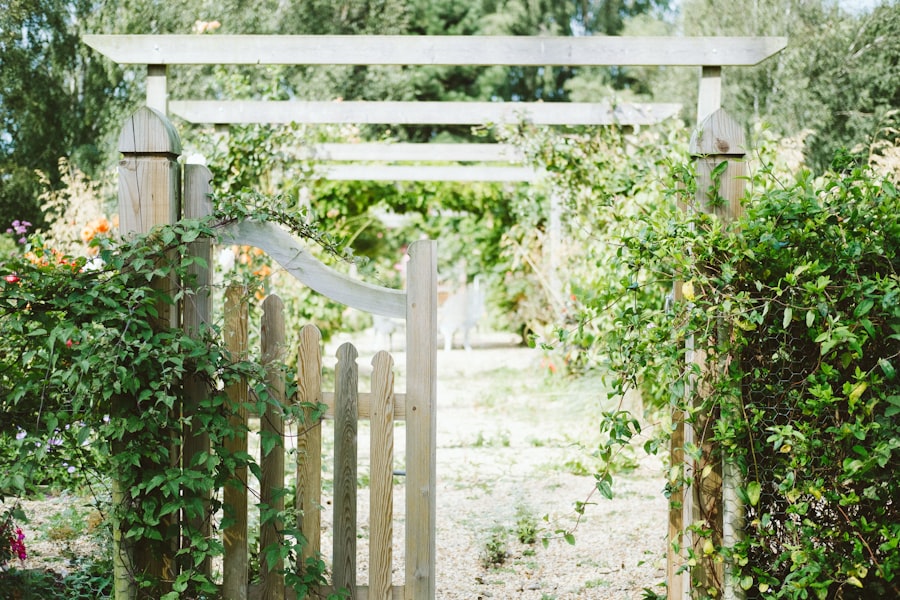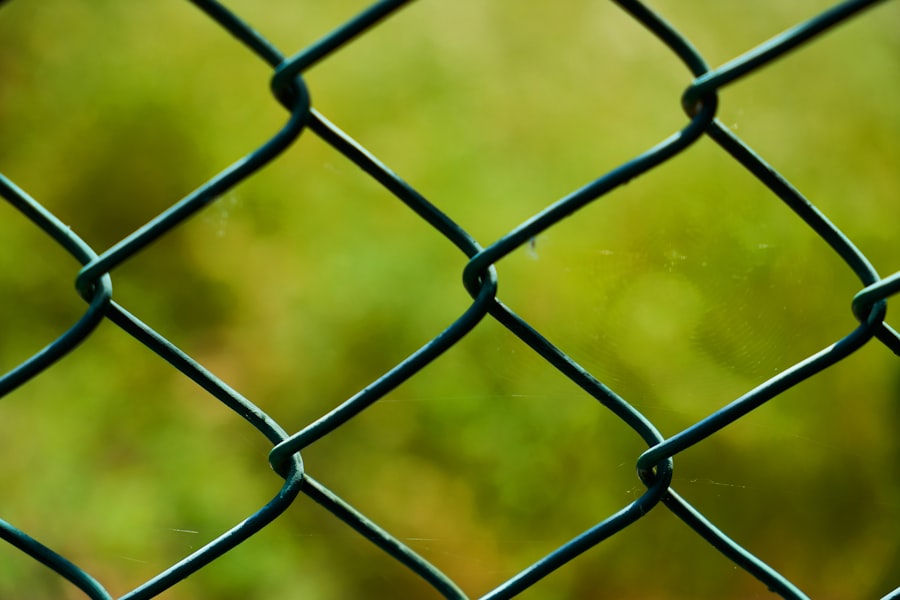Chickens are inherently inquisitive and gregarious animals with a strong instinct for foraging. They are easily startled by abrupt movements or loud sounds. Understanding these behavioral traits is essential for protecting gardens from chicken-related damage.
By recognizing their natural tendencies, gardeners can implement effective deterrent strategies. Chickens exhibit territorial behavior and may perceive gardens as extensions of their domain. This territoriality can result in scratching and pecking at soil, potentially damaging plant roots.
Furthermore, chickens possess a keen olfactory sense and are drawn to specific scents, which may lead them to target particular areas of a garden. Awareness of these behaviors enables gardeners to take proactive measures in safeguarding their plants from potential chicken-induced damage.
Table of Contents
- 1 Creating Physical Barriers
- 2 Using Natural Deterrents
- 3 Implementing Repellents
- 4 Choosing Chicken-Friendly Plants
- 5 Providing Alternative Areas for Foraging
- 6 Consistent Monitoring and Maintenance
- 7 FAQs
- 7.1 What are some effective ways to keep chickens out of flower beds?
- 7.2 Why do chickens like to go into flower beds?
- 7.3 Are there any plants that can help repel chickens from flower beds?
- 7.4 Is it safe to use chicken wire or other physical barriers to keep chickens out of flower beds?
- 7.5 How can I train my chickens to stay out of the flower beds?
Key Takeaways
- Chickens are naturally curious and will explore their surroundings, so understanding their behavior is key to deterring them from unwanted areas.
- Physical barriers such as fences and netting can effectively keep chickens out of specific areas, but they need to be properly installed and maintained.
- Natural deterrents like predator decoys, reflective objects, and noise makers can help keep chickens away from certain areas without causing harm to the birds.
- Repellents such as sprays and granules can be used to discourage chickens from specific areas, but they should be applied carefully and in accordance with the manufacturer’s instructions.
- Choosing chicken-friendly plants that are safe for chickens to eat and providing alternative areas for foraging can help redirect the birds’ natural behavior away from unwanted areas.
- Consistent monitoring and maintenance of physical barriers, natural deterrents, and repellents is essential to ensure their effectiveness in deterring chickens from unwanted areas.
Creating Physical Barriers
Installing Fencing Around the Perimeter
One effective way to protect your garden from chicken damage is to create physical barriers that prevent them from accessing the area. This can be achieved by installing fencing around the perimeter of your garden. The fencing should be tall enough to prevent the chickens from flying over it and sturdy enough to withstand their attempts to scratch or peck at it.
Securing the Fence Underground
Additionally, burying the bottom of the fence underground can prevent the chickens from digging underneath it to gain access to your garden.
Using Chicken Wire Cloches
Another physical barrier that can be used to protect your garden is a chicken wire cloche. This can be placed over individual plants or rows of plants to prevent the chickens from reaching them. The cloche should be secured firmly in place to prevent the chickens from knocking it over or moving it aside.
Effective Deterrent
By creating physical barriers, you can effectively deter chickens from causing damage to your garden.
Using Natural Deterrents

In addition to physical barriers, natural deterrents can also be used to protect your garden from chicken damage. One effective natural deterrent is the use of predator decoys, such as fake owls or hawks. These decoys can be placed strategically around your garden to create the illusion of a predator presence, which can deter chickens from entering the area.
Another natural deterrent is the use of reflective surfaces, such as aluminum foil strips or old CDs. These reflective surfaces can create flashes of light and movement that can startle and deter chickens from approaching your garden. Additionally, planting strong-smelling herbs, such as lavender or mint, around the perimeter of your garden can help deter chickens, as they are known to dislike certain scents.
Implementing Repellents
Repellents can also be used to protect your garden from chicken damage. There are a variety of commercial repellents available that are specifically designed to deter chickens. These repellents often contain natural ingredients, such as garlic or hot pepper, which are known to be unappealing to chickens.
They can be sprayed directly onto plants or around the perimeter of your garden to create a deterrent barrier. Another effective repellent is the use of citrus peels. Chickens are known to dislike the scent of citrus, so placing citrus peels around your garden can help deter them from causing damage.
Additionally, vinegar can be used as a natural repellent by mixing it with water and spraying it around the perimeter of your garden. By implementing repellents, you can create an unappealing environment for chickens and protect your plants from potential damage.
Choosing Chicken-Friendly Plants
When planning your garden, it’s important to choose plants that are less appealing to chickens. There are certain types of plants that chickens are known to avoid, such as strong-smelling herbs like rosemary and thyme, as well as plants with prickly or spiky leaves, such as holly or barberry. By incorporating these types of plants into your garden, you can help deter chickens from causing damage.
Additionally, planting dense ground cover, such as creeping thyme or juniper, can help protect the soil and roots of your plants from scratching and pecking by chickens. These ground cover plants create a barrier that makes it more difficult for chickens to access the soil and cause damage. By choosing chicken-friendly plants, you can create a garden that is less appealing to chickens and reduce the risk of damage.
Providing Alternative Areas for Foraging

Designated Foraging Areas
One effective strategy for protecting your garden from chicken damage is to provide alternative areas for foraging. By creating designated foraging areas for your chickens, you can redirect their natural instinct to scratch and peck away from your garden. This can be achieved by designating a specific area of your yard for the chickens to forage, such as a patch of bare soil or a designated foraging box filled with sand and scratch feed.
Enrichment Activities
Additionally, providing enrichment activities, such as hanging treats or toys for the chickens to peck at, can help keep them occupied and less likely to cause damage in your garden.
Satisfying Natural Instincts
By providing alternative areas for foraging, you can satisfy the natural instincts of your chickens while protecting your garden from potential harm. This approach not only saves your garden but also keeps your chickens happy and engaged.
Consistent Monitoring and Maintenance
Consistent monitoring and maintenance are essential for protecting your garden from chicken damage. Regularly inspecting the perimeter of your garden for any signs of chicken activity, such as scratching or pecking marks, can help you identify potential areas of concern. By addressing these areas promptly and reinforcing physical barriers or applying repellents as needed, you can prevent further damage to your plants.
Additionally, maintaining a clean and tidy garden can help deter chickens from causing damage. Removing fallen fruits and vegetables, as well as keeping the ground clear of debris, can help reduce the attractiveness of your garden to chickens. By consistently monitoring and maintaining your garden, you can effectively protect it from potential damage caused by chickens.
In conclusion, understanding the behavior of chickens is crucial when it comes to protecting your garden from potential damage. By implementing physical barriers, natural deterrents, and repellents, as well as choosing chicken-friendly plants and providing alternative areas for foraging, you can effectively protect your garden from chicken damage. Consistent monitoring and maintenance are also essential for identifying and addressing potential areas of concern.
By taking proactive measures and implementing effective strategies, you can create a garden that is less appealing to chickens and reduce the risk of damage caused by their natural behaviors.
If you’re looking for more information on keeping chickens, you might be interested in learning about A-frame chicken coops. This type of coop is a popular choice for many chicken owners and can provide a safe and secure environment for your flock. Check out this article to learn more about the benefits of A-frame chicken coops and how they can help keep your chickens out of flower beds.
FAQs
What are some effective ways to keep chickens out of flower beds?
Some effective ways to keep chickens out of flower beds include using physical barriers such as fences or chicken wire, using natural deterrents like citrus peels or coffee grounds, and training the chickens to stay away from the flower beds.
Why do chickens like to go into flower beds?
Chickens are naturally curious and like to scratch and peck at the ground, which can lead them to wander into flower beds in search of insects, seeds, or other food sources.
Are there any plants that can help repel chickens from flower beds?
Yes, there are certain plants that can help repel chickens from flower beds, such as marigolds, lavender, and rosemary. These plants have strong scents that chickens may find unpleasant.
Is it safe to use chicken wire or other physical barriers to keep chickens out of flower beds?
Yes, using chicken wire or other physical barriers is a safe and effective way to keep chickens out of flower beds. Just be sure to secure the barriers properly to prevent any potential harm to the chickens.
How can I train my chickens to stay out of the flower beds?
You can train your chickens to stay out of the flower beds by using positive reinforcement, such as offering treats when they stay away from the flower beds, and by consistently redirecting them away from the area when they try to enter. Consistency is key in training chickens.
Meet Walter, the feathered-friend fanatic of Florida! Nestled in the sunshine state, Walter struts through life with his feathered companions, clucking his way to happiness. With a coop that’s fancier than a five-star hotel, he’s the Don Juan of the chicken world. When he’s not teaching his hens to do the cha-cha, you’ll find him in a heated debate with his prized rooster, Sir Clucks-a-Lot. Walter’s poultry passion is no yolk; he’s the sunny-side-up guy you never knew you needed in your flock of friends!







